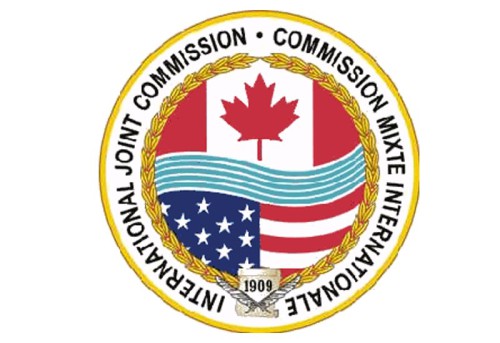TORONTO—Great Lakes organizations are alarmed with the International Joint Commission’s (IJC) “Adaptive Management” advice being forwarded, instead of dealing with a significant cause of the record-setting low water levels on Lakes Michigan and Huron.
As water levels in Lakes Michigan and Huron set new monthly record lows, the IJC has recently sent signals that it will ignore public concerns and requests for viable solutions, announcing instead a ‘Great Lakes Regional Adaptive Management Plan,’ said Mary Muter, chair of the Sierra Club Ontario’s Great Lakes Section, on Tuesday.
“We decided to put out a release to let everyone know what the IJC is planning to do, instead of waiting for their official announcement on their plans,” Ms. Muter told the Recorder. “One of the IJC commissioners made a presentation at a meeting in Chicago last week where it was outlined they are putting forward this ‘adaptive management’ plan, which basically tells everyone who has concerns or has put forward recommendations for solutions to the low water levels to basically ‘get used to it’.”
The Sierra Club release notes that in January 2013, American IJC Commissioner Dareth Glance acknowledged that water levels were getting lower, but still “within historical ranges.” Ms. Glance said that because there is “so much uncertainty,” both the Canadian and American governments should simply ‘adapt’ to the reality of lower water levels.
However, water levels in Michigan/Huron/Georgian Bay have declined far more than those of the other Great Lakes and show no signs of either leveling off or rising after 13 years of low levels. Ongoing erosion from earlier dredging of the St. Clair River and removal of the sand content of the water is causing excess outflow from Michigan/Huron/
Georgian Bay through the lower lakes and out into the Atlantic Ocean. This in turn results in local wetlands being drained and shorelines exposed to new invasive species, causing the ecosystem to deteriorate badly.
“The Commissioners did hear a loud and clear message at their summer 2012 public hearings around the ‘Great Lakes Restore Our Water Levels’,” the release says. “At the conclusion of the IJC hearings Canadian Commissioner Lyall Knott said, ‘we hear you loud and clear, restore our water levels’.”
“The over 1,200 public attendees at the Georgian Bay hearings alone will not be happy to learn the IJC is now telling them to get used to lower water levels. The one thing that is not needed is more ‘study.’ “We need solutions now,” said Ms. Muter.
“We expect the recent numbers to get worse, compounding the effects,” said Dr. Pat Chow-Fraser, director of life sciences at McMaster University, who monitors the damage to the ecosystem. “Lack of snow and ice means more evaporation in winter, and even lower water levels next spring. The Michigan/Huron/Georgian Bay ecosystem is being affected most profoundly.”
A viable solution to the water loss was submitted to the IJC by the Sierra Club, a national environmental organization, in the summer of 2012, the release notes. “It proposed submerged sills, or water ‘speed bumps’ in the St. Clair River, which would slow down the water flow and allow the Michigan/Huron/Georgian Bay levels to rise gradually over time and allow wetlands to flood again and fish to be able to get into rivers to spawn again. These sills are based on a design agreed upon by both Canada and the US in 1962 and their shared cost over several years would be an estimated $200 million (Canadian) to install. This price tag is a bargain compared to the cost of doing nothing except to keep dredging and blasting to maintain access. Local stakeholders are watching the frightful scene of billions of dollars being lost due to lightly loaded cargo ships, dried up harbours, marinas and wetlands, a steady decline in recreational fishing and continued algal blooms,” continued the release.
“At these numbers, it would take years of consisted rain to naturally improve the situation,” says Roger Gauthier, a retired hydrologist of the US Army Corps of Engineers (USACE). “Continued dredging and blasting on Michigan/Huron/Georgian Bay can only do so much. We cannot continue to spend billions of dollars when there is a viable economically and environmentally responsible solution. Both our countries agreed to compensation and it is high time the terms of that agreement were now met.”
“The cost of doing nothing now is in the billions-and increased ecosystem damage,” said Ms. Muter. “Water levels can be restored responsibly by gradually installing sills at the head of the St. Clair River to meet the terms of the 1956 bi-national agreement as a condition of dredging the St. Clair River for the St. Lawrence Seaway Project. It’s time for governments to work together to finish the job, before we have further disasters,” she added.





